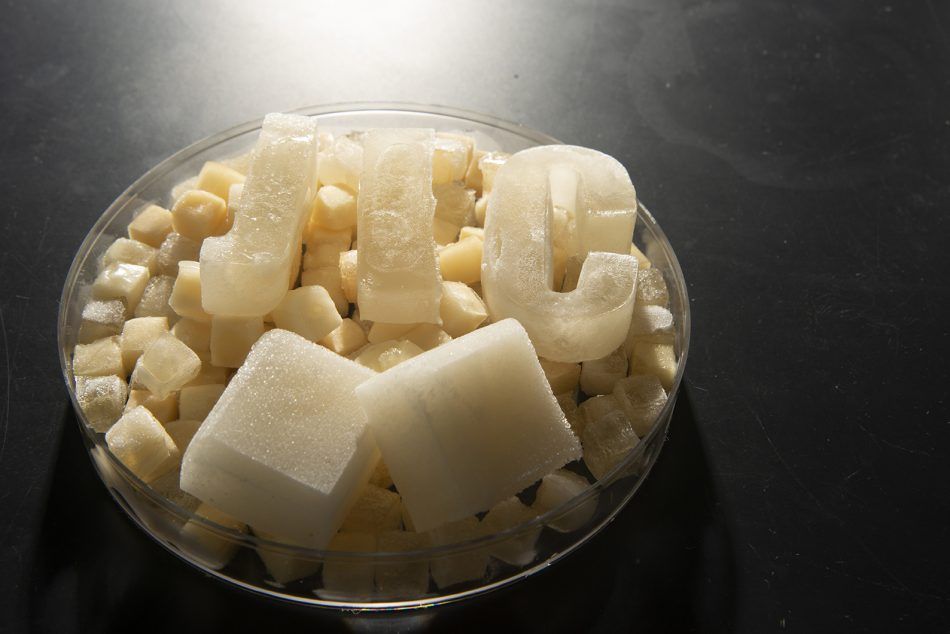
🧊 Jelly ice cubes - a sustainable solution for cold storage
Recently US Davis researchers developed a new alternative to ice. It doesn’t melt, it is compostable and anti-microbial.
Share this story!
Being able to ship refrigerated goods without using ice or classical ice packs is what the researchers from UC Davis wished for. Now, they have created a substitute for regular ice that doesn’t melt, can be composted, is antimicrobial and it’s called “jelly ice cubes”.
“When ice melts, it’s not reusable,” said Gang Sun, a professor in the Department of Biological and Agricultural Engineering in a UC Davis press-release. “We thought we could make a so-called solid ice to serve as a cooling medium and be reusable.”
Jelly ice cubes consist of 90 percent water but it has stabilizing components that keep them from melting or cross-contaminating other cargo. The new ice cubes are soft to the touch and resemble gelatin. To indicate what temperature the cubes have they change color.
Jiahan Zou, a Ph.D. graduate student working on the project said in the press release, that the reusable cubes can be designed or cut to any shape and size needed. It can be used for 13 hours before it needs to be rinsed and re-frozen.
“You can use it for 13 hours for cooling, collect it, rinse it with water and put it in the freezer to freeze again for the next use,” Sun added.
The team wants to make the jelly ice even more sustainable by using recycled agricultural waste or byproducts for the cubes' coolant material.
“We want to make sure this is sustainable,” said Luxin Wang, an associate professor in the Department of Food Science and Technology.
After Wang saw the amount of ice used at fish-processing plants and the cross-contamination happening because of the melt water, the team started working on the jelly ice cubes.
“The amount of ice used by these fish-processing sites is massive,” Wang said. “We need to control the pathogens.”
Plastic ice packs are one alternative to regular ice but they are very plastic intensive and are prone to mold growth. The jelly ice cubes can withstand 22 pounds of weight without changing shape and can be reused a dozen times. But the best part is that at the end of its life it can be composted without leaving any waste behind.
By becoming a premium supporter, you help in the creation and sharing of fact-based optimistic news all over the world.


